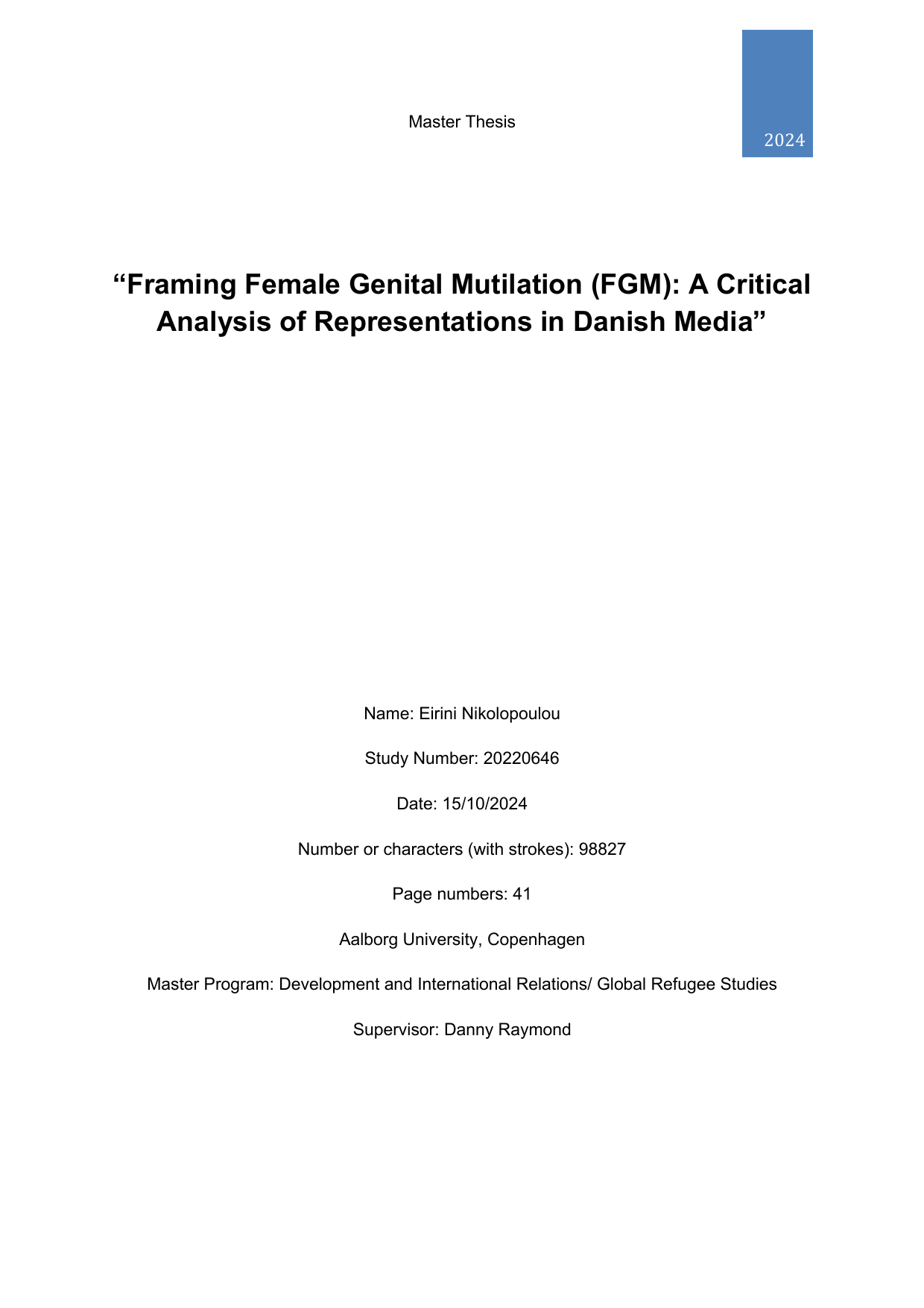
Framing Female Genital Mutilation (FGM): A Critical Analysis of Representations in Danish Media
Author
Term
4. semester
Education
Publication year
2024
Submitted on
2024-10-15
Pages
41
Abstract
Female Genital Mutilation (FGM) is a deeply entrenched practice predominantly found in certain African cultures, impacting the lives of countless girls. In recent years, this practice has also surfaced in Western societies, particularly among refugee communities who adhere to traditional customs. This raises critical questions about how Western societies, such as Denmark in our case, confront and engage with FGM, especially considering varying cultural perceptions and ethical considerations. Specifically, how does the Danish media respond to claims of Muslim leaders that FGM is “good for the girls”? This MA thesis aims to investigate whether Danish media representations of FGM reflect or contest postcolonial and postmodern discourses, and if so, how these dynamics manifest in practice. To explore this question, I conducted a Critical Discourse Analysis (CDA) of three editorials from different Danish newspapers, selected for their diverse political orientations and approaches to the topic. The analysis employed the theoretical frameworks of Orientalism, postcolonial feminism, and gender performativity to unpack the narratives surrounding FGM. These theories provide a robust context for understanding the implications of media representations on societal perceptions of gender, culture, and identity. The findings reveal that Danish media largely reflect prevailing discourses surrounding FGM, reinforcing stereotypes and cultural binaries that position Western practices as progressive and non-Western practices as archaic. However, I also identified instances of slight contestation where editorial voices recognize the agency of affected women. These representations contribute to the construction of several patterns. Additionally, the analysis highlights notable absences in the discourse, such as the lack of voices from affected communities and nuanced discussions around the complexities of cultural practices. These absences indicate potential areas for further research and engagement, suggesting the need for a more inclusive dialogue that acknowledges the lived experiences of those affected by FGM. By illuminating these dynamics, this thesis contributes to ongoing discussions in feminist and postcolonial studies, emphasizing the complex interplay between media narratives, cultural practices, and the ethical considerations that arise in a globalized context.
Keywords
Documents
